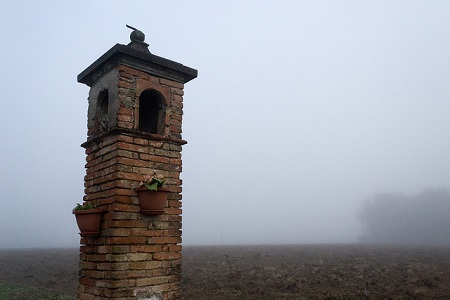Followers of classical music may know that several young ensembles are dramatically changing the topography of the music world and the way audiences experience concerts. Despite the global economic crisis that has so savagely sapped the arts – and in some cases as a reaction to it – these groups are charging ahead with innovative structures and identities. Among these adventurous young ensembles, generally comprised of players in their 20s and 30s, there is often a shared fatigue about the traditional ensemble-to-listener relationship. They are energetically exploring new ways of engaging with their audiences, trying to make the concert experience more intimate. “This is probably the first major change in concert behaviour since the French Revolution,” Marshall Marcus wrote for The Guardian in 2010. These ensembles are also developing unusual approaches to the scores they interpret and constructing more democratic systems in their rehearsal process. In Europe, they often function as small but diverse societies, where many languages, nationalities and backgrounds are represented.

A standout example of this pioneering attitude is the conductorless chamber orchestra Spira Mirabilis, based in the sleepy town of Formigine, Italy. The musicians hail from Italy, Germany, Switzerland, Austria, Slovakia, Slovenia, Spain, France, Holland, Sweden, Northern Ireland, England and even the United States, Colombia, Panama, Australia and New Zealand. (Full disclosure: I myself have participated in several Spira projects since 2009, as a violinist.) Rehearsals are conducted in English, but during breaks you can hear any number of languages spoken as players lounge over coffee and tea.
Spira (as the orchestra is affectionately called) was formed in 2007. Many of these young musicians perform with Europe’s most prestigious ensembles, but carve out time to meet throughout the year – usually in Formigine, but also in spots around the EU – in order to do what they usually cannot: focus all their energies on one single piece of music. During the days they are together, they delve deep to explore within the parameters of a common interpretative language.
One of the ensemble’s oft-repeated goals is to purposefully “create problems”; not to resolve interpretative issues efficiently as one aims to do in a more conventional setting, but to pose further questions and introduce experiments – a luxury they aren’t usually afforded in their everyday work. The resulting concert is simply part of the rehearsal process, not the summit of the project and certainly not the objective of rehearsals. “We don’t think of [the concert] as something final but as a picture of us at a certain stage of our maturation and growth,” declares the Spira Mirabilis website. In fact, a comment often heard at the end of a Spira project is that the musicians would like to go on rehearsing the same piece!
This is probably the first major change in concert behaviour since the French Revolution – Marshall Marcus
Another curious aspect of the Spira is that musicians are paid only travel and living expenses. This may seem unsustainable, but the orchestra has been going strong for upwards of eight years now, with numerous players participating in all of the six or seven projects per year; not to mention the sort of unofficial waiting list of musicians around Europe eager to join them. Is it a somewhat rarefied and elite experience? I would say yes. In 2012, arts writer Rupert Christiansen wrote for Telegraph Magazine that “even these blazing idealists have to earn their bread, and the absence of a living wage means that members have to regard Spira as the equivalent of an occasional monastic retreat”. This is perhaps exactly what the founding members of the orchestra desire. “The fact that Spira is made for that particular aim of rehearsing a lot makes it completely not efficient from the market point of view,” said founding member and French horn player Francesco Bossaglia. “Nobody would take Spira as an example if they wanted to work and play concerts – it’s not the way Spira works.” As a result, there is a natural selection of participants who have the wherewithal and interest to devote time to Spira.
The orchestra never plays with a conductor, even for complex works like Bartok’s Music for Strings, Percussion and Celesta or Beethoven’s epic ninth symphony. This has a great impact not only on the rehearsal process but also in concert. Musicians must take a more active role in both: “Nobody is a passenger. Everyone’s driving,” observed James Murphy of Huffington Post UK in 2013. As often occurs with conductorless ensembles, this active, chamber music-like energy is palpable from the audience.

Formigine, Modena, Italy is the backdrop of Spira Mirabilis
In rehearsal, principal players often take the lead, but comments are accepted from anyone. However, the process is decidedly not a free-for-all. The musicians have established a common musical language they use to approve or dismiss ideas; suggestions must adhere to that core language. How was this developed? “At the very beginning,” says Bossaglia, “we had to make some strong decisions, because when you start a group without clear leadership… it was chaos, it was almost anarchy.
“I think there are two ways this thing took shape,” he continues. “The first is the natural selection of musicians; the other thing is that there were common experiences that we [shared].” He explained that the orchestra tries to avoid the ‘dead end’ of personal taste, relying onstead on the principles of the core language. “Sooner or later you get to the point of talking about personal taste, and then you get stuck – you have to make a decision, decide that someone leads or whatever. With Spira, we’re trying to make that moment as distant in time as possible.”
In an age when the arts are vulnerable, where economics drive culture, we are in profound need of such parallel worlds; worlds that provide nourishment for arts and ideas.
Spira also pays particular attention to connecting with the audience, taking advantage of their short concerts to speak with the public in Q&A sessions. “I love the discussions,” said longtime audience member Antonia Spaggiari, of Formigine. “There is an incredible feeling right away between the musician speaking and the audience.”
Spira’s unusual practices and ebullient spirit have created quite a stir in recent years, with praise from The Times and La Repubblica alike. They have now performed – as well as turned down – appearances that did not match their ideals, at some of Europe’s most hallowed venues.
Could an orchestra like Spira be a study for society at large? One of the group’s mentors, clarinetist Lorenzo Coppola, writes: “They actually do ‘politics’, with the best possible meaning of this dangerous word: if you elaborate a strategy to solve problems, with the aim of improving society, you are actually doing politics, very good politics[…].” On the other hand, Bossaglia explains that “the project is focused on the music, we did it because we wanted to create a space to learn, to do our things in the way we wanted; that was always our main concern. In a way, it’s like we try to keep Spira apart from everyday life, everyday situations, or everyday institutions… it’s like a parallel world in a way, you know?”
In an age when the arts are vulnerable, where economics drive culture, we are in profound need of such parallel worlds; worlds that provide nourishment for arts and ideas. We need these spaces as practitioners and the public alike. Fortunately, if we keep our ears to the classical music scene, we may indeed find a few of these oases.
Cover photo courtesy of the Spira Mirabilis website






